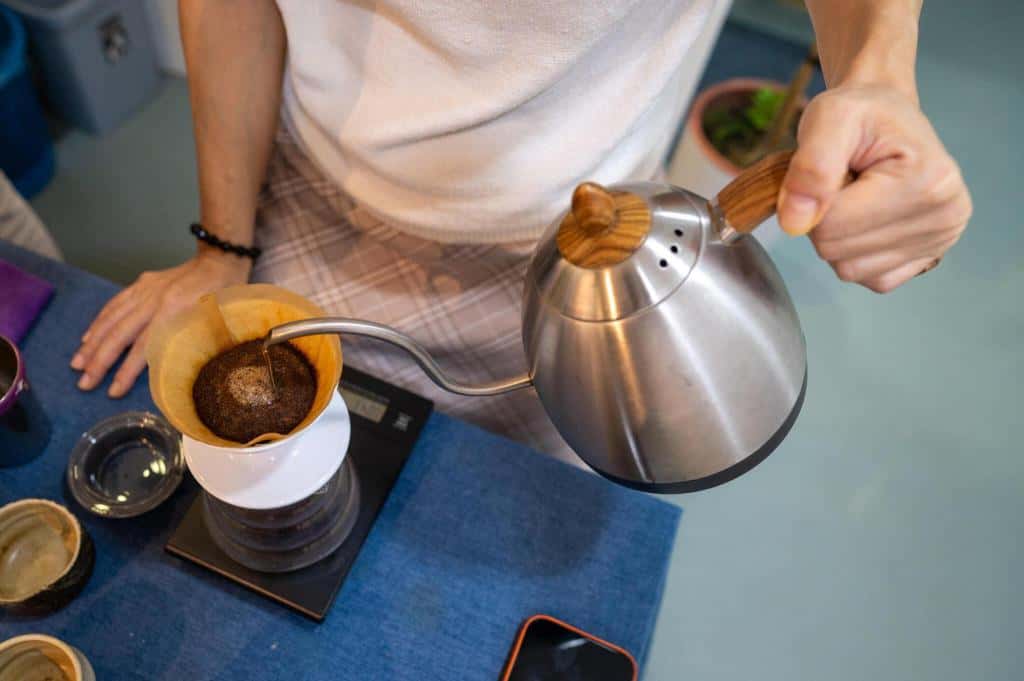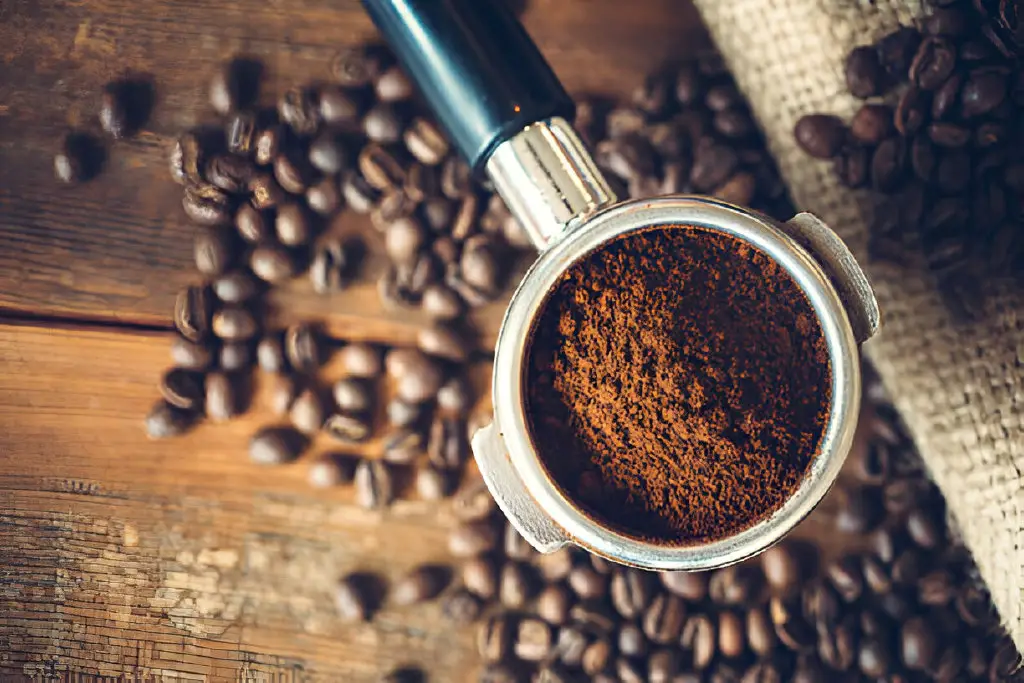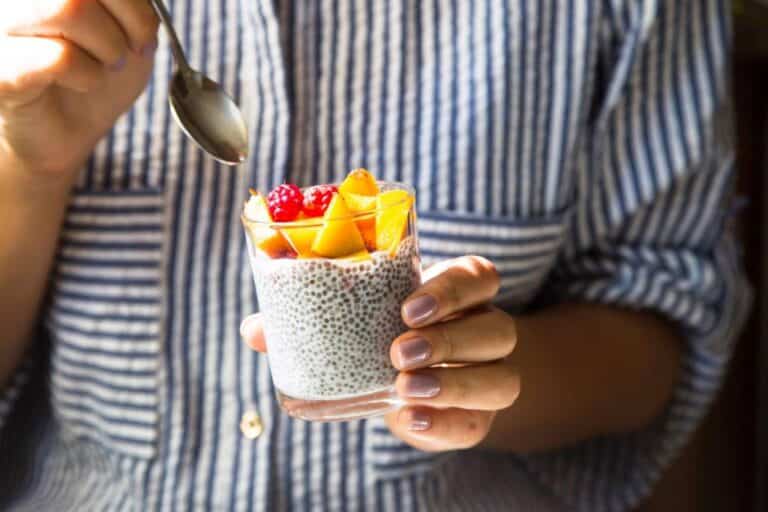Decaf Coffee vs. Regular: Which Provides More Energy?

When it comes to starting my day, nothing beats a good cup of coffee. But, as I’ve learned over the years, not all coffee is created equal—especially when it comes to energy. I’ve found myself asking the age-old question: Decaf or regular—what really gives me more of a kick?
We’ve all been there, standing in front of the coffee pot, trying to decide whether to go for the strong, caffeinated brew or the gentler, decaffeinated option.
It’s easy to assume that regular coffee is the clear winner when it comes to boosting energy levels, but it’s worth diving into what makes each type unique. Both have their perks, but they work in different ways. In this article, I’ll explore the science behind decaf coffee and regular coffee, and help you figure out which one might be better for fueling your day without the jitters.
What Is Decaf Coffee?

Decaf coffee or decaffeinated coffee is a type of coffee that has 97% of its caffeine removed. However, before proceeding with the roasting and grinding process, green coffee beans should be decaffeinated first.
Many methods are used to remove caffeine from coffee beans. One of the methods is soaking green coffee beans in water only or with the addition of other solvents such as methylene chloride or ethyl acetate until caffeine is removed and then the beans are drained.
On the other hand, caffeine is removed from coffee beans using the “supercritical carbon dioxide” method, which is also known as the Swiss Water Process.
All methods used for caffeine removal are safe. Moreover, after caffeine extraction, coffee beans are washed in water and dried. After drying, the coffee bean is roasted and then grounded.
Since caffeine has been removed, the taste of decaf coffee might be milder and less bitter than regular coffee.
How Much Caffeine is in Decaf Coffee?
Decaffeination does remove around 97% of the caffeine in the coffee beans, so a low percentage of caffeine will remain in the coffee bean. However, the caffeine content in decaf coffee is much lower than in regular black coffee.
So one cup of decaf coffee might contain a maximum of seven milligrams of caffeine, whereas a regular cup of coffee can have around 70 to 140 milligrams of caffeine.
However, the caffeine content in regular coffee depends on the type of coffee used, which can be light or dark, the fineness of the grinded coffee beans, such as medium or small chunks, the preparation method, the temperature of the water, and many other factors.
Decaf Coffee vs. Regular: What Are the Differences?
Decaf coffee and regular coffee have several key differences:
1. Caffeine Content
- Regular Coffee: Contains a significant amount of caffeine, typically between 70-140 milligrams per 6-ounce cup.
- Decaf Coffee: Has most of its caffeine removed, typically leaving less than 3 milligrams per 6-ounce cup.
2. Taste and Flavor
- Regular Coffee: Known for its rich, bold flavor and aroma.
- Decaf Coffee: May have a milder taste and aroma due to the removal of some oils and flavors during the decaffeination process.
3. Health Effects
- Regular Coffee: Can cause jitters, increased heart rate, and sleep disruptions in excessive consumers. However, moderate consumption is generally considered healthy.
- Decaf Coffee: Does not have these caffeine-related side effects, making it a better option for those sensitive to caffeine or with certain health conditions.
4. Preparation Process
- Regular Coffee: Beans are roasted and ground without any caffeine removal.
- Decaf Coffee: Beans undergo a decaffeination process, which involves soaking, extracting, and separating caffeine from the beans.
5. Popularity
- Regular Coffee: Still the more popular choice, with 82% of coffee drinkers preferring caffeinated coffee.
- Decaf Coffee: Gaining popularity, especially among those who want to enjoy coffee without the caffeine effects.
| Check out: Is Toffee Coffee? Why Does Toffee Taste Like Coffee |
6. Cost
- Regular Coffee: Generally less expensive than decaf due to the simpler processing steps.
- Decaf Coffee: More expensive due to the additional steps involved in removing caffeine.
7. Health Benefits
- Regular Coffee: Provides various health benefits, including improved mental health, increased metabolic rate, enhanced athletic performance, and a lower risk of liver damage.
- Decaf Coffee: Similar health benefits, but the research is less extensive due to the relatively recent rise in decaf popularity.
Does Decaf Coffee Give You More Energy than Regular?
No, decaf coffee does not give you energy since it is lacking caffeine. Moreover, caffeine is well-known as a stimulant of the central nervous system since it stimulates the secretion of adrenaline and cortisol.
However, in some people, despite being almost caffeine-free, decaf coffee might alter sleep, leading to insomnia and other symptoms, especially in people having caffeine addiction or suffering from caffeine intolerance.
Furthermore, despite having a small amount of caffeine, it is very important to know at which time of the day to consume it. The peak of the caffeine effect in your body is within one hour of its consumption.
However, the caffeine effect can last for around four to six hours, which is the time needed by your body to get rid of caffeine.
What Are the Health Benefits of Decaf Coffee?
Decaf coffee, like regular coffee, has many health effects since it still contains a lot of antioxidants. However, antioxidants in decaf coffee might be slightly lower than in regular coffee due to the extraction method and the use of chemicals.
However, one of the health benefits of decaffeinated coffee is reducing your risk of developing type 2 diabetes.
Thus, not caffeine but antioxidants are the components that reduce your risk of developing diabetes.
Additionally, decaffeinated coffee will decrease your risk of developing heart disease and cardiovascular problems, as well as developing some types of cancer, especially rectal cancer.
Also, it is considered liver protective since decaf coffee has been demonstrated to reduce liver enzyme levels.
On the other hand, decaf coffee might decrease your risk of developing dementia, Alzheimer’s disease, and Parkinson’s disease. The reason behind that is the presence of chlorogenic acid; hence, caffeine is also demonstrated as being protective against these problems in the elderly.
Moreover, decaf coffee has less acidity than the regular one. So, decaf coffee is suitable for people suffering from GERD and heartburn. Because it is well known that caffeine can worsen reflux and heartburn due to its effect on relaxing your stomach sphincter.
Furthermore, since it is lacking caffeine, decaf coffee will not alter your sleep and will not leave you sleepless at night. Also, decaf coffee reduces your anxiety, especially for people with anxiety problems.
Additionally, decaf coffee is suitable for people with caffeine sensitivity. So, drinking decaf coffee will not cause adverse health effects such as heart palpitation, insomnia, and many others in those people.
Who Should Choose Decaf Over Regular Coffee?
Many health problems call for consuming decaf coffee over regular coffee. First of all, people with caffeine sensitivity should go for decaffeinated coffee. Low caffeine in this type of coffee will reduce the risk of having adverse effects.
Moreover, people with high blood pressure are advised to consume decaf coffee. Since caffeine is considered a diuretic that stimulates the secretion of ADH it may lead to an increase in blood pressure.
Furthermore, pregnant women should not consume more than 200 milligrams of caffeine per day since it increases the risk of miscarriage and might affect the baby’s health, so decaf coffee is a good option in this case.
On the other hand, people under several medical prescriptions, like taking anti-anxiety drugs, should not consume regular coffee. Since caffeine might decrease the effectiveness of the drug.
Other Factors to Consider
While caffeine is a key factor in determining the energy-boosting effects of coffee, there are other factors to consider. The amount of coffee consumed, the brewing method, and individual tolerance to caffeine can all impact how coffee affects energy levels. Additionally, other compounds in coffee, such as antioxidants, may also play a role in its overall impact on health and energy levels.
Conclusion
Decaf coffee and regular coffee are two popular choices for those looking to enjoy a cup of joe without the jolt of caffeine. While both offer a similar taste and aroma, there are key differences between the two when it comes to their caffeine content and energy-boosting effects. In this article, we’ll explore the differences between decaf and regular coffee, their caffeine content, and how they impact your energy levels.
In conclusion, regular coffee provides more energy than decaf coffee due to its higher caffeine content. However, the energy-boosting effects of caffeine can vary depending on individual factors. If you’re looking for a quick energy boost, regular coffee may be the better choice. However, if you’re sensitive to caffeine or looking to reduce your caffeine intake, decaf coffee can still provide a flavorful alternative without the stimulating effects of caffeine.





